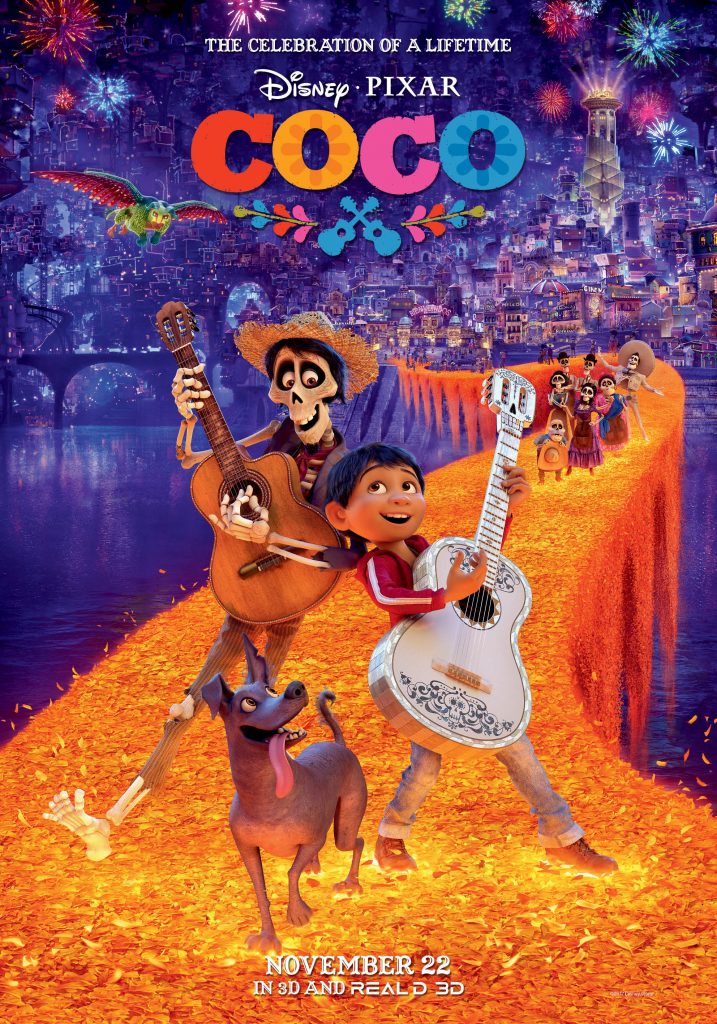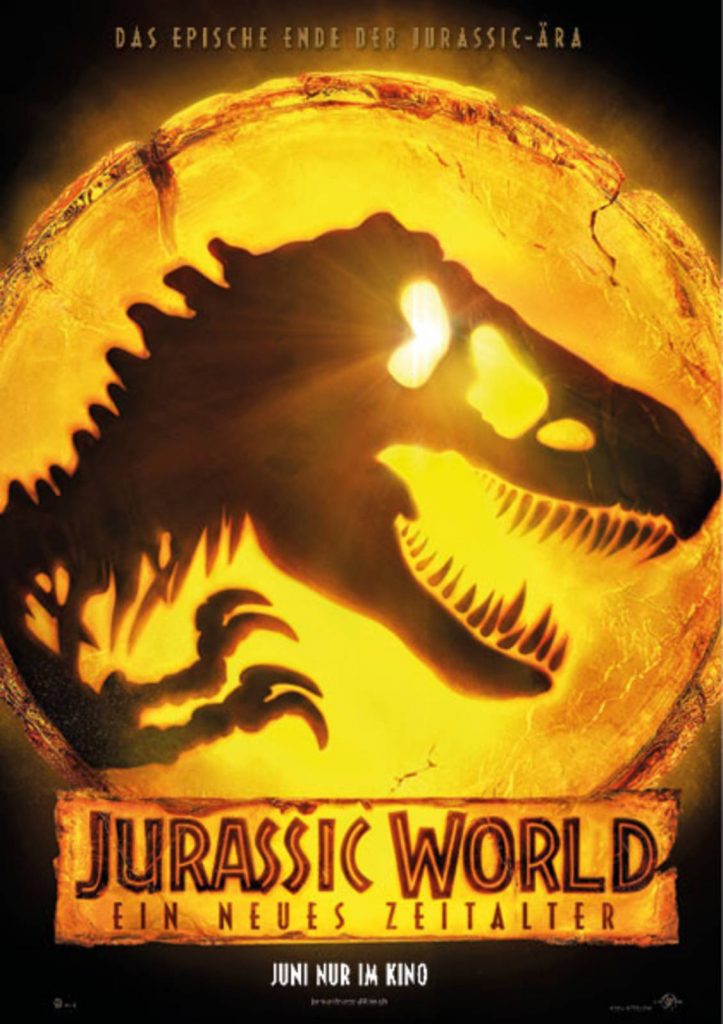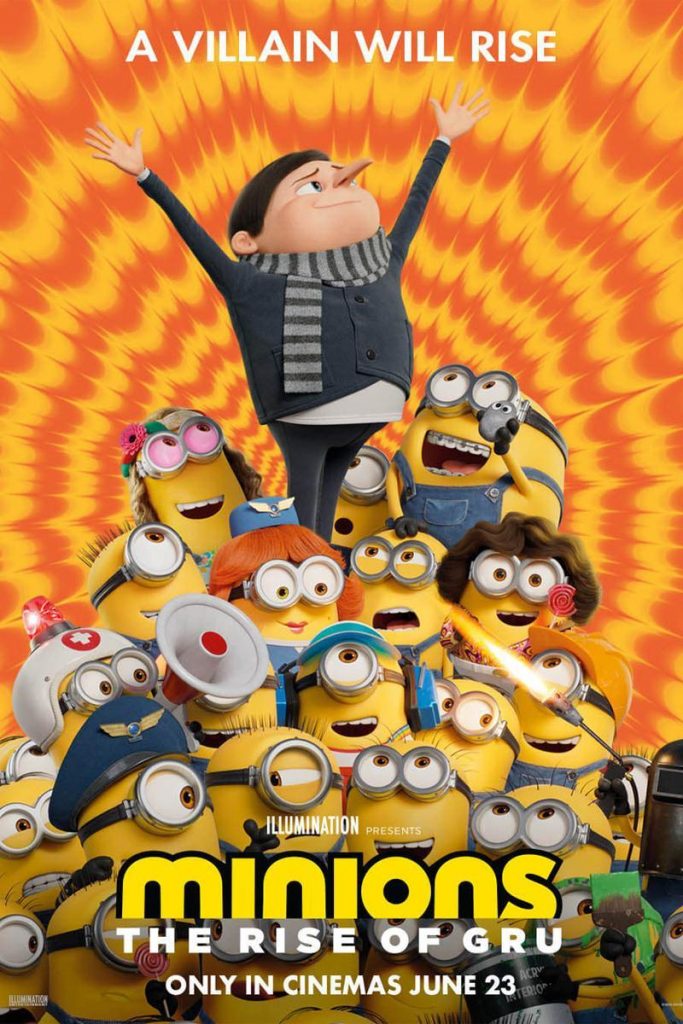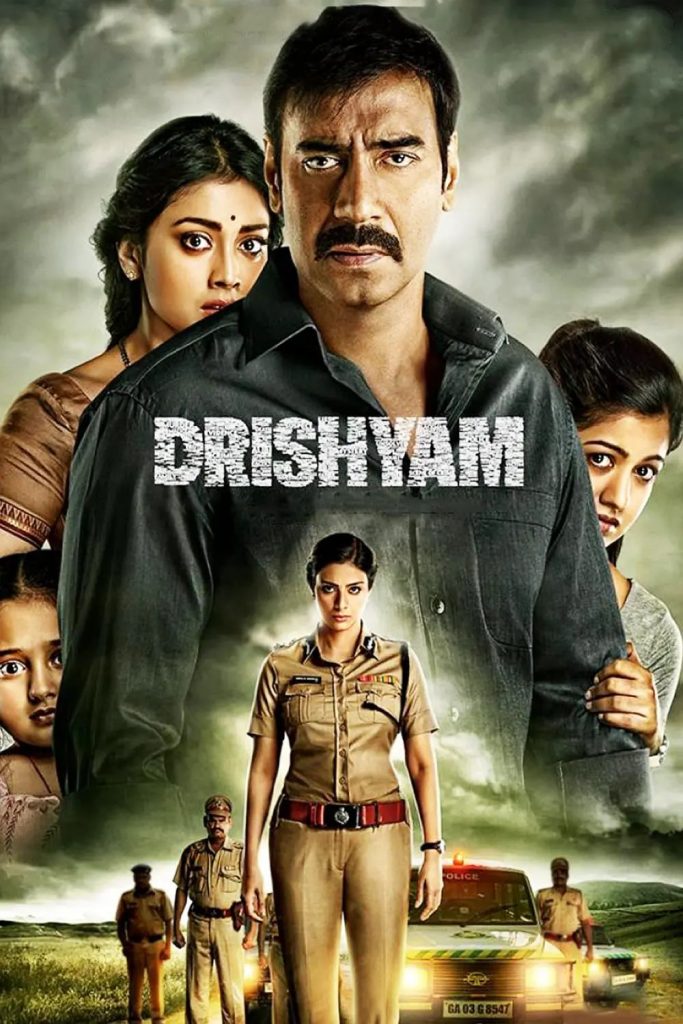I have a good friend who once told me, when I was very low, never to think about ‘what if’.
“What if” is indeed an easy question to wrap your head around. We have probably all thought, at one time or another, that if we were not here, but in a different situation, our lives would be much better. For example, I’ve seen people who struggle in the big city fantasise that if they had stayed back home, and I’ve seen people who have chosen one partner fantasise that they had chosen another back then.
Today we are going to talk about a film directed by Woody Allen about ‘crossing over’ – Midnight in Paris. In the film, a mediocre Hollywood screenwriter comes to Paris on holiday and inadvertently ‘travels’ back in time to 1920s Paris, where he meets some of the world’s leading writers and artists such as Ernest Hemingway and F. Scott Fitzgerald, and has some fascinating stories to tell. Winner of the 2012 Golden Globe Award for Best Screenplay and the 2012 Academy Award for Best Original Screenplay, the film is a role model for most ‘crossover’ stories.
Like most people, Hollywood screenwriter Gil (Owen Wilson) has had a difficult life.
Gill’s ambition is to write real literature and he wants to quit his job as a screenwriter to write a real full-length novel. He is stuck for a long time in a bottleneck of novel writing and is unable to move an inch on the path of his ambition.
Fiancée Inez and Gill’s relationship seemed close to outsiders, but in reality it was not. Inez did not understand Gill’s literary ambitions, let alone support them. She had completely different ideas from Gill’s, believing that he should concentrate on earning money rather than fantasising about writing a full-length novel. When she came to Paris on holiday, Inez was more concerned with news of sales in furniture shops than with the art and culture of Paris.
Inez’s father was also unimpressed with Gill, mainly because Gill had different political views from his. The family could get into a fight over a few words at dinner.
To make matters worse, Gill had to put up with ridicule from his friends and fiancée about his writing of novels. His friend Paul, a bookish ‘intellectual’, always treated Gill and his half-baked work with a condescending attitude, which was always a source of embarrassment to Gill.
Inez admires Paul and the two gradually begin to have an affair. Gill is disturbed but is afraid to accuse his wife. When Paul invites Inez to the dance, he just wants to find a quiet place to walk alone.
This is Gill’s terrible life. Ideals are on the verge of being abandoned and relationships are a mess. He endures it all passively, as time passes and he wonders if life will ever get better.
And so Gill has the melancholy and fantasy that many of us have had – “What if I were in another life”. In Paris, Gill is immersed in a fantasy of the Paris of the 1920s, which was known as the ‘feast of the mobile’. He imagines that he lived in a time when literature and art were at their peak, surrounded by cultural celebrities – that his creative work would have gone better, that people around him would have known and valued him more, and that everything would have gone in the direction he wanted.
Gill’s thoughts are common in life. When we are overwhelmed by the difficulties of life, it is easy to develop a desire to “live somewhere else”. It is often the case that the reason for the lack of success is the external conditions of life: “If I had lived a different life, I would have been better off”, “If I had chosen a different path, I would have been much better off”.
But would everything really go as smoothly as one might think if one really had to live a different life? Director Woody Allen gives us the answer – Gill crosses over. As he strolls alone through the streets of Paris at midnight, the bell rings and he is invited to travel back in time in a minivan – back to the Paris of the 1920s that he has always wanted.
Gil enters a bar and first he hears the famous American musician Cole Porter (1891.6.9 – 1964.10.15) playing and dazzling him with his wonderful melodies.
Then he met the famous American author Scott Fitzgerald (1896.9.24 – 1940.12.21), author of “The Great Gatsby” and “Heaven on Earth”. Gill said he was a writer, and the Fitzgeralds entertained him warmly.
Fitzgerald led Gill to visit another of his writer friends, and when Gill saw him, he was so surprised that he lost his voice – he saw the most famous novelist of the last century, Ernest Hemingway (1899.7.21-1961.7.2). Hemingway asked Gill to sit down for a drink and Gill was so excited that he couldn’t speak.
Gill’s joy at understanding the era in which he lived was far greater than his surprise. He joined the circle of writers of the era, went on to visit the famous poet and art collector Gertrude Stein (1874.2.3-1946.7.27), and happened to meet the famous painter, Pablo Picasso (1881-1973), at Gertrude Stein’s house.
Not only did he meet many outstanding writers, but Jill also met an extremely attractive woman, Adriana. She studied fashion design in Paris and was one of Picasso’s lovers. After reading just the first paragraph of Gil’s novel, she took a great interest in him and said she was “hooked” by his excellent writing. Gil had never met a woman who thought so highly of him, and the more he talked to her, the more he became interested.
Everything Gil had imagined had become a reality. He felt he belonged in this era, where writing novels and falling in love would be much smoother than in his old life. By day he lives a normal life in the twenty-first century, and at midnight he can’t wait to travel back to the 1920s in a minivan – the era of his dreams.
Gil arrives at this imaginary perfect ‘life elsewhere’, where he imagines that everything should be going smoothly – but that’s not how things work out. Is life really better when you live elsewhere? Let’s calm down and take a fresh look at Gill’s new life.
Does Jill really have to be well on her way to her ideal path?
Gill wants some advice on his work from his idol, Hemingway, who doesn’t want to read his work at all. He tells Jill: “I hate reading other people’s fiction. If it’s well-written, I’ll be jealous, and then I’ll hate it even more; if it’s badly written, I’ll hate it because I hate bad writing. You’d better not ask for an opinion from another writer; writers are competitors.” Hemingway’s point is clear: writers improve by themselves, not by asking.
In fact, Hemingway did not care at all about Gill’s literary aspirations. For in the mind of Hemingway, who fought in two world wars, a true writer was extremely brave and proud, whereas Gill was the opposite. Hemingway was more interested in giving Gill a pair of boxing gloves to fight with than in talking to him about literature.
Meeting so many artists did not allow his creative skills to soar as Gill had imagined.
Gill and Fitzgerald were only nodding acquaintances from start to finish; Gertrude Stein read his novels and only encouraged him without specific comments; there was only one dance with the American author Doona Barnes; and he could not even communicate properly with Salvador Dali, the surrealist painter with a passion for painting rhinoceroses.
After the euphoria has cooled, Gil’s heart feels the same déjà vu helplessness as it did in the twenty-first century.
At the same time, the love aspect was equally painful for him. After Adriana left Picasso, Gil had the courage to try to show her affection, only to realise that he had no place in her heart – she had gone on a trip to Kilimanjaro with Hemingway. It should have occurred to Jill that Adriana, who said she was easily ‘seduced’ by good writing, had every reason to be ‘seduced’ by Hemingway.
In the end, life is elsewhere, and Gill’s life remains essentially the same – still struggling to write fiction, still unappreciated by those around him, still in a humble position in relationships.
Director Woody Allen is using Jill’s experience of crossing over to puncture the perfect ‘life elsewhere’ that people have in their minds. A perfect life exists only in the imagination, and in fact, life in any time and place can be difficult and painful. We can only see the advantages of another life in our imagination, but if we actually experience it, we are bound to find new pains and difficulties that we had not thought of. In reality, there is no such thing as an easy, painless life.
Pain and hardship can only be understood in the flesh, whether we imagine them or hear about them, we cannot really understand them. It is because we cannot understand and feel the difficulties and pains of the “life elsewhere” that it becomes a perfect, painless village of imagination.
“If I had chosen a different career, I would be better off now”, “If I hadn’t left Ta, I would be happier now”, “If I had lived in a freer place, I would have been much better off”. “And there is no comparison between these two situations in time and space; none of these judgements can be valid. Every life has its difficulties, every path has its pains, and “if only” is a comfort and an anaesthetic.
Why is her own fiction bad? What is the right writing style for him? Gill finally realised that only he could find the best answers to these questions, and that neither Nobel-class writers nor famous editors could give better answers. By the time he had worked out the answers, he had actually taken a big step on the road to becoming a real writer.
After Adriana returned from Kilimanjaro, Jill asked her out and they talked again about creative writing.
Gill reflected more deeply on himself and realised that the most important problem was that he was not courageous and determined enough to be serious in his attempts, as he would always have the Hollywood screenwriter as a fallback. Each of Gil’s introspections was a breakthrough from his previous bad situation, because he began to understand that the real prison was not the era in which he lived, but the real prison was his own inner numbness, laziness and timidity. He decides to return to the twenty-first century, knowing that living in the twenties is no better than the twenty-first century.
At this point, the film takes an intriguing turn. The bells of Paris ring at midnight and a carriage invites Gil and Adriana on board, and together they travel back in time from the 1920s to the 1890s – the Paris of the so-called Belle Époque.
Coincidentally, the artists of the 1890s were talking about “travelling back in time”, and they too were depressed by the paucity of imagination in this era, and imagined that they could go back to the Renaissance.
Adriana, from the 1920s, chose to stay in the 1890s, feeling more inspired by the ‘golden age’ she had in mind for her fashion designs. Gill, on the other hand, made a completely different choice this time. He says: “If you want to stay here, then this is your present, and then before long you start to imagine another time, and what is the present? The present is a lot less than it could be, but life is made up of less than it could be. If I wanted to create something really meaningful, then I had to eradicate my illusions, and ‘thinking I’d be happier living in the past’ was one of those illusions.”
Gil resolutely returned to the twenty-first century. At this point, he becomes brave and determined, realising that life can only be changed little by little by himself.
He is no longer submissive in front of his fiancée. He asks Inez if she has been cheating on him with Paul. Inez admits it and doesn’t see anything wrong with it, even justifying it by saying that Gill should put up with it. Jill finds the courage to decide to break up with her.
Inez was more than happy to break up, and did not stop taunting Jill until the last second of their parting. Jill understood that this was an important choice for him to change his life at this moment. Without doing something about it, it was only likely to get worse.
Gil wandered the streets of Paris alone, finding it a better place than America to fulfil his ambitions. He read books in Shakespeare’s bookshop, listened to classical music in an antique grocery shop, admired art paintings and meditated alone in an open air bar. He makes a decision – he quits his job in America and moves to Paris to write his novel full time.
At the end of the film, Gill meets the young woman who owns the thrift shop on the bridge. Jill and she had enjoyed a Cole Porter record together at the grocery shop. Halfway through their conversation, it suddenly rains heavily. The two of them said in unison that they didn’t need an umbrella.
Once, Jill had been taunted by Inez for deliberately not holding an umbrella in the rain; at the moment, the shopkeeper and Jill looked at each other and smiled as they strolled unhurriedly through the Parisian rain. “I’m Gabrielle, by the way.” “I’m Jill.” The two smiled and introduced themselves.
The film ends with gentle music and the sound of rain.
Once Gil understands that no amount of crossing over to either life will make his life better, he begins to make positive changes in the present moment. All these changes offer the possibility of his life getting better.
Everyone’s life is different, with all sorts of ideals, but also facing very different conditions, resistance and hardship. Gil simply found his own way of making a difference in his situation. There is no panacea for life. The smoothness and beauty you want in life in any time and space will not be achieved overnight. The ideal life can only be worked out and approached little by little with your own efforts.
In this process, it is worth reminding yourself of a few things. Keep looking at and changing yourself. In the midst of disappointment and fatigue, it is easy to become unconsciously numb – to accept yourself as you are and to lose the motivation and ability to change yourself positively. Life is changing, and one can only get worse if one remains static. Like Gill, who recognised his timidity, laziness and lack of desire to change and was brave enough to make changes, there was hope that life would change for the better.
Life is not so bad that there is no possibility of it getting better, so try to find the positive side of life in the here and now. If you only complain, get depressed and fantasise, you will naturally lose sight of the good opportunities around you.
There is also the awful fact that, like it or not, your life can only be what it is. There is nothing to do but accept it.
May you get closer and closer to your ideal life.













